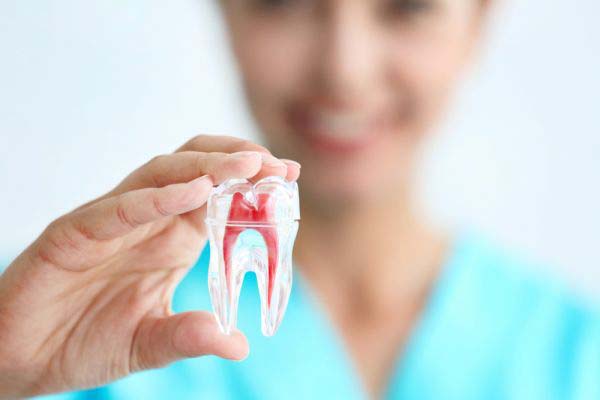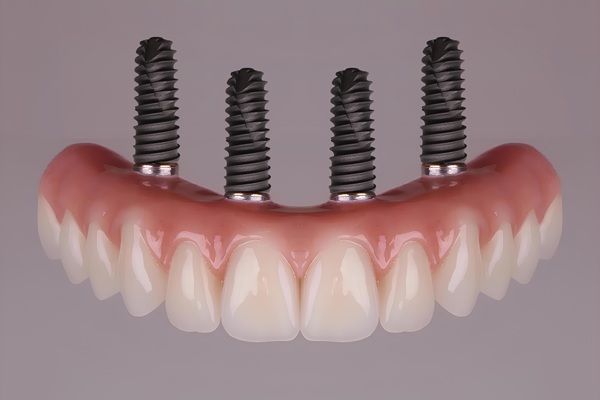A Dental Office Near Miami Shares 4 Things to Know About Fluoride Treatments

You are thinking of going to a dental office to get fluoride treatments, but you are not quite sure yet. You know that fluoride helps prevent cavities, but do you need a fluoride treatment? Find out more about fluoride treatments to determine if you should schedule one.
What to know about fluoride treatment
1. Fluoride treatments strengthen enamel
Many people know that fluoride fights cavities, but few know how. Fluoride treatments strengthen the enamel, making it more difficult for cavities to form.
To understand this, one must understand the process of demineralization and remineralization. Demineralization occurs when people eat and drink items that contain sugar. The sugar attracts bacteria, and then acid forms. Acid removes calcium and phosphate from the enamel and makes it softer. This leads to decay. It is important to understand how fluoride impacts this process.
Remineralization is a process that repairs enamel. Saliva contains calcium and phosphate. Salivary glands go into overdrive during demineralization to add minerals back to the enamel. Fluoride makes the remineralization process more powerful, improving the strength of the enamel.
2. Fluoride treatments are recommended for patients at high risk for cavities
Fluoride plays an important role in preventing tooth decay. It can even repair teeth that are in the early stages of decay. Patients who are at high risk for cavities can go to a dental office to get a fluoride treatment.
While anyone can get cavities, some people are at a higher risk than others. Poor oral hygiene is one risk factor, but it is far from the only one. Other risk factors include:
- A history of drug or alcohol abuse
- Eating disorders
- Eating a poor diet
- Existing tooth decay
- Defects in the enamel
- Dry mouth
- Exposed roots
- Failure to go to the dentist regularly
Those who are at high risk should visit the dentist.
3. Insurance typically covers children's fluoride treatments
Both children and adults can get fluoride treatments, but some insurance policies only cover treatments for children. People can talk to their dentists prior to treatment to find out if it will be covered.
4. The process is quick
Some people have dental anxiety, so the idea of going to a general dentist for a fluoride treatment is overwhelming. However, the treatment only takes a few minutes, and shots are not required.
The general dentist might use a varnish, foam, gel or solution for the fluoride treatment. There are two options for applying the treatment. The dentist might use a brush or swab to apply it to the teeth, or a tray. If the fluoride is placed in a tray, patients must hold it in their mouths for several minutes.
Visit a dental office for healthy teeth
Fluoride treatments at the general dentist can help you get healthier teeth. Fluoride strengthens enamel and is especially beneficial for those who are at high risk for cavities. The process is quick, and it might even be covered by insurance. Contact your dental office to find out more about these treatments.
Request an appointment here: https://www.southfloridadentalarts.com or call South Florida Dental Arts at (305) 230-4041 for an appointment in our Miami office.
Check out what others are saying about our services on Yelp: Read our Yelp reviews.
Recent Posts
When gums start to recede and pull away from the teeth, it can alter the appearance of the smile and leave the teeth vulnerable to decay. A cosmetic dentist may fix receding gums, restoring the smile's appearance. While the focus will be on aesthetics, some cosmetic dental procedures may also protect your oral health.Gum recession…
If someone is missing teeth, it is imperative to replace them as soon as possible. Implant-supported dentures are one option for replacement. These fixed dentures allow for an effective and natural bite, which means that the wearer can eat normally. Unlike traditional dentures, implant-supported ones are attached to the jawbone, which prevents bone loss and…
A gummy smile shows more gum tissue than expected. If you consider your smile a bit too gummy, a cosmetic dentist can provide various treatments to help achieve the look you want. A cosmetic dentist can help patients safely alter the appearance of a gummy smile and other issues with various cosmetic treatments.Dentists refer to…
A cosmetic dentist can help improve all aspects of a smile's appearance, including alignment. They can offer a few treatments to straighten the teeth or make them appear straighter. If you are considering seeing a cosmetic dentist about your smile alignment, here is more about their services.Before discussing how a cosmetic dentist straightens teeth, it…


